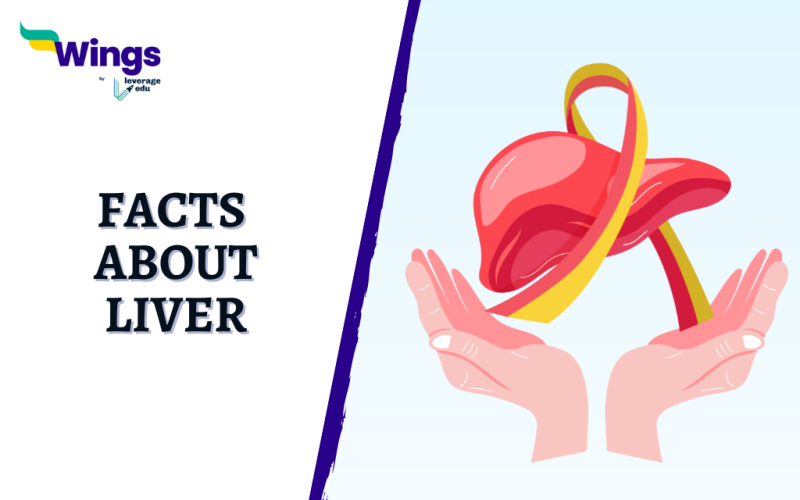Facts About Liver– The liver is known to be the only organ in the human body that can heal on its own. It actually weighs around 1.3 kg in women and 1.8 kg in men. The liver, situated just below the rib cage, is an essential organ responsible for detoxifying blood, controlling blood sugar, regulating clotting, and numerous other crucial functions for the body. This article will cover everything about the liver from facts about killer diseases to facts about liver transplants.
Table of Contents [show]
Facts About Liver Disease
Here are some facts about liver disease that you should know:
- You would be shocked to know that obesity is a major cause of liver disease.
- Another fact is contrary to common belief, liver problems aren’t always linked to alcohol or drugs. Some liver diseases are even hereditary.
- As mentioned above, the liver has a remarkable ability to heal itself. However, ongoing damage can prevent this natural repair process, leading to serious health risks.
- Liver inflammation is an early warning sign. While it’s a normal response to injury, continued inflammation can cause long-term liver damage.
- Liver failure is a life-threatening condition. Symptoms like nausea, loss of appetite, and fatigue can be vague and easily overlooked.
- Early detection of any disease related to the liver is important. Regardless of the cause, severe liver damage can be fatal. Regular check-ups with your doctor are essential for maintaining liver health.
- Some of the associated liver diseases are – Liver Cancer, Hepatitis A, B, C and Nonalcoholic Fatty Liver, etc
Also Read- 20 Interesting Facts About Skin
Facts About Liver Transplant
A liver transplant is a treatment. It is used for people with liver cancer or liver failure that cannot be managed with other medicines. Here are some facts about liver transplants.
- There are two types of liver failure. There is acute liver failure, which happens rapidly and is often caused by medication complications and chronic liver failure, which develops gradually over time.
- Cirrhosis is a common cause of liver transplant. This condition, where healthy liver tissue is replaced by scar tissue, is the most frequent reason for needing a liver transplant.
- Chronic liver failure is more common. While acute liver failure can be treated with a transplant, chronic liver failure is more likely to require this procedure.
- India accounted for nearly one-fifth of global cirrhosis deaths in 2017, with over 259,000 fatalities due to liver disease.
- A liver transplant is a complex surgery. It involves replacing a diseased liver with a healthy one from a deceased or living donor.
Facts About Liver Cancer
As per an article by the Print, every year there are a total of 35000 cases of liver cancer throughout the nation. Below-mentioned are facts about liver cancer.
- Most liver cancer starts in liver cells (hepatocellular carcinoma) and often develops in people with other liver diseases like hepatitis or cirrhosis.
- Alcohol abuse, hepatitis B or C, cirrhosis, obesity, diabetes, and certain ethnicities increase liver cancer risk.
- Jaundice, abdominal pain, loss of appetite, swelling, weight loss, nausea, and fatigue are common signs.
- Non-cancerous liver tumours can occur but usually don’t cause symptoms and might not require treatment.
- While symptoms can be vague, it is essential to consult a doctor if you experience any concerns.
Facts About Liver Cells
Liver cells are also known as hepatocytes. They are the primary functional units of the liver. These cells perform a wide number of important functions for the body. Here are the facts about liver cells.
- Hepatocytes are responsible for over 500 different functions, including filtering blood, metabolizing nutrients, producing bile, and storing energy.
- Liver cells have an incredible ability to regenerate and repair themselves, even after significant damage. Therefore, the liver is a self-cleaning human organ.
- These cells break down fats, proteins, and carbohydrates, converting them into energy for the body to use.
- Hepatocytes help neutralize toxins and harmful substances in the blood.
- They produce bile, a fluid essential for digesting fats.
- Liver cells create essential proteins, including albumin, which helps maintain blood pressure, and clotting factors for blood coagulation.
Also Read- Which is the Largest Gland in the Human Body?
Facts About Liver Donation
Due to a shortage of liver, it claims 500,000 lives annually, with liver disease alone accounting for 200,000 deaths every year. Here are the facts about liver donation.
- Your liver can fully regrow after donating a portion. So it is completely safe to donate your liver.
- Extensive evaluations ensure donor health and safety before and after surgery. It is done to avoid any discrepancy in the whole procedure and the after health of the donor.
- You don’t need to be related to the recipient to donate your liver. Compatibility and emotional connection matters.
- Compatible blood types are essential for successful liver donation.
- Living liver donation does not impact future fertility for men or women.
FAQs
The liver is a vital organ for numerous functions like metabolism, immunity, and detoxification. This small but mighty organ comprises just 2% of an adult’s body weight.
The liver is the body’s chemical processing plant, filtering blood, breaking down toxins, and producing essential substances for survival.
The liver is the only organ in the body that can clean itself.
Relevant Reads
| Facts about Science | Facts About the World |
| Facts About Kidney | Facts About Cancer |
| ALT Full Form | Full Form of SGPT |
Hope you had fun reading these interesting facts about the liver. If you like reading about facts, you can visit our interesting facts page to read more such blogs.
 One app for all your study abroad needs
One app for all your study abroad needs















 45,000+ students trusted us with their dreams. Take the first step today!
45,000+ students trusted us with their dreams. Take the first step today!
